World
Out in the World: LGBTQ news from Europe and Asia
Thai lawmakers approve marriage equality bill

PORTUGAL
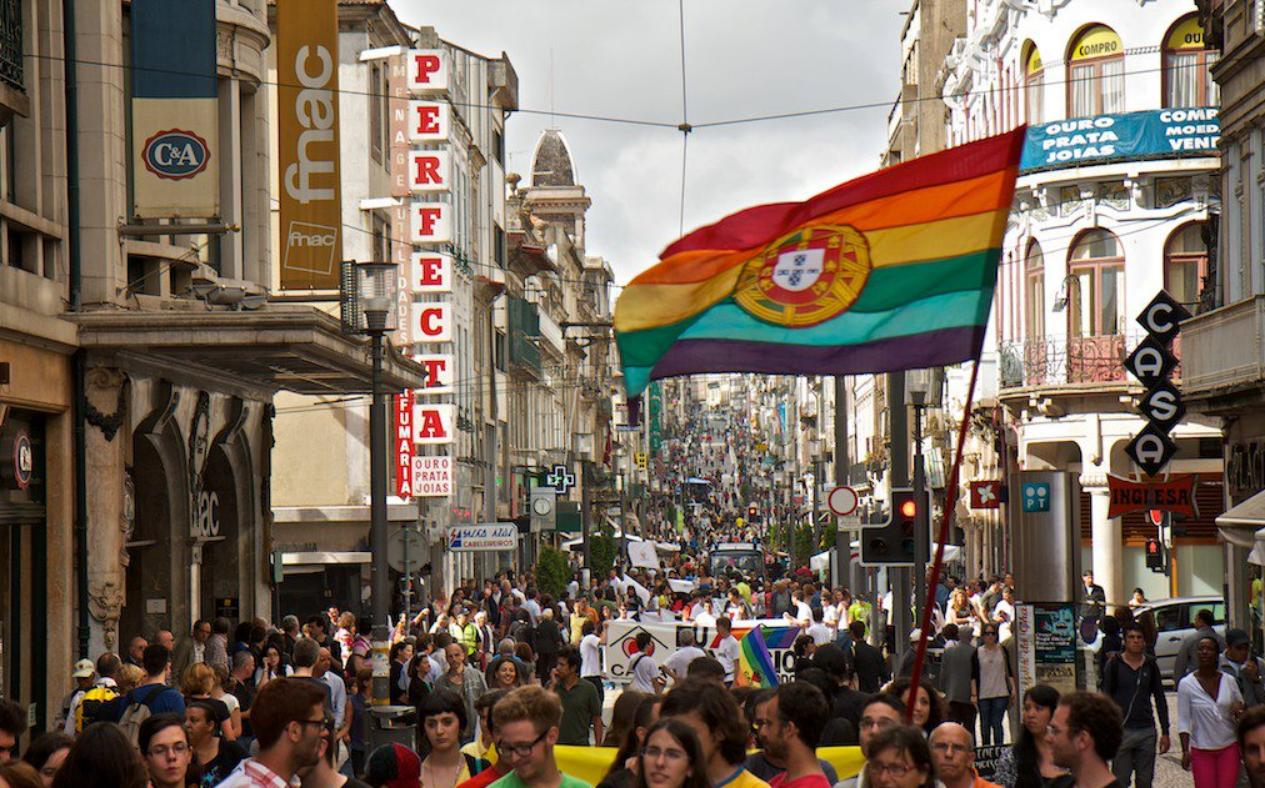
The Portuguese Parliament passed the final draft of a bill this past week, which was first introduced last May by the Bloco de Esquerda, the populist democratic socialist political party, that outlaws “any practice aimed at the forced conversion of sexual orientation, identity or gender expression.”
Joined in a coalition with the Livre and PAN parties, the new law incorporates into the country’s penal code that “whoever subjects another person to this type of treatment, including the performance or promotion of medical-surgical procedures, practices with pharmacological, psychotherapeutic or other psychological or behavioral resources, will be punished with a prison sentence of up to three years or a fine.”
During the parliamentary debate in the Constitutional Affairs, Rights, Freedoms and Guarantees, the College of Physicians Committee issued a statement in which it criticized this type of therapy for “not having proven its effectiveness nor respecting the ethical and deontological standards of medical practice.” The organization highlighted that “diversity in sexual orientation and gender identity represents normal expressions, which cannot be considered diseases.”
The law now heads to President Marcelo Rebelo de Sousa for his signature.
Passage of the law by Parliament brings Portugal into alignment with other European Union nations. Malta was the first European country to ban the practice followed by Germany, Greece, Albania, France and Belgium.
SPAIN

The Assembly of Madrid, the unicameral autonomous legislature which governs the region around Spain’s capital city, voted this past week to rollback protections for transgender people. The measure was passed by the conservative People’s Party.
The measure also contained a proviso that guidelines preventing harassment of LGBTQ students in schools is eliminated, all content aimed at showing the LGBTQ community and the training of teachers in this matter are removed from the study plans.
The bill amended a regional trans rights law and an LGBTQ rights law, both of which were passed in 2016. The decision makes Madrid the first Spanish region to roll back such legislation. The anti-trans bill stripped the previous law of its fundamental pillar: The concept of “gender self-determination” or “freely expressed gender identification.”
The PP’s new law replaced the terms “trans people” and “gender identity” with “transsexuals” and “transsexuality,” terms which activists say are demeaning.
The Standard, a British news outlet, reported the move by the PP party sparked outcry from the opposition in Madrid and LGBTQ activists.
Carla Antonelli, an assembly member for the left-wing Mas Madrid party who is trans, wore red gloves symbolizing bloodied hands during the raucous debate preceding the vote. She called the bill an “abomination” and compared it to the actions of Nazi SS doctor Josef Mengele, who “also spoke of science to exterminate Jews and LGTBQ people.”
“When you press that button to vote for this infamy … you will all have blood on your hands,” Antonelli said adding: “This is terrorism towards trans people. You won’t be able to wash your dirty conscience because we will remind you of it every day.”
The Standard also noted that in December 2022, Spain passed a nationwide bill allowing trans people aged 14 and over to change their legal gender without the need for psychological or other medical evaluation, though those aged 14-16 would still need parental or guardians’ agreement.
Fourteen other Spanish regions out of the country’s 17 have laws for the protection of trans rights, LGBTQ rights, or both, on the books.
GREECE

The spokesperson for Greece’s center-right government announced Dec. 21 that legislation legalizing same-sex marriage will be brought to the Hellenic Parliament before its current term expires in 2027.
Pavlos Marinakis noted this action would take place despite facing staunch opposition from the country’s influential Orthodox Church, which the church’s governing Holy Synod had submitted late on Dec. 20, expressing strong opposition to legalizing same-sex marriage.
The Greek City Times reported that the church’s stance drew significant attention from the Greek news media, sparking a lively debate within the country. Opinion polls indicate that Greeks are evenly divided on the issue of same-sex marriage but generally oppose granting full parental rights to gay couples.
“The position of the Church of Greece remains that children have an innate need and therefore a right to grow up with a male father and a female mother. No amount of social modernization and no amount of political correctness can bypass (this),” the church document said.
“Children are not companion pets for those who wish to feel like a guardian, and are not ‘accessories’ to formalize or make same-sex cohabitation socially acceptable,” it added.
The Associated Press noted that Greece’s left-wing opposition leader, Stefanos Kasselakis, married his male partner in New York in October, several weeks after winning a party leadership election.
Greece legalized same-sex civil partnerships in 2015.
HUNGARY

In a press conference on Dec. 21, Hungarian Prime Minister Viktor Orbán accused the European Commission of blackmailing his country over its anti-LGBTQ laws and other rule-of-law concerns.
“In our view, Hungary fulfils all the qualities of the rule of law, and when the European Commission has specific needs, we implement everything from them, and we are also cooperative,” Orbán told reporters. “You cannot blame me for doing everything I can to promote Hungary’s interests in such a blackmailed situation.”
Orbán has been embroiled in a long-standing dispute with the governing body of the EU, the European Commission, which has frozen billions of funds intended for Hungary over concerns about human rights and the rule of law in the country.
The government of the conservative ruling party of the prime minister has been feuding with the EU since passage of Hungary’s anti-LGBTQ education law in June 2021.
Orbán, who has publicly proclaimed that he is a “defender of traditional family Catholic values,” has been criticised by international human rights groups as discriminating against LGBTQ+ people with this law which European Commission President Ursula von der Leyen called a “disgrace.”
The European Commission, the ruling body of the EU, referred Hungary to the EU Court of Justice over the anti-LGBT law in mid-2022. The commission has said it considers that the law violates the EU’s internal market rules, the fundamental rights of individuals and EU values.
UNITED KINGDOM

A Manchester Crown jury found a pair of teenagers guilty in the murder of Brianna Ghey, a 16 year old trans girl and TikTok creator who was brutally stabbed to death in a park in Culcheth, Warrington, in February 2023.
The jury unanimously ruled the teens, known only as Girl X and Boy Y, guilty after deliberating for over four hours. The judge said she would have to impose a life sentence, with the official sentencing to take place next year.
Ghey, who lived in Birchwood, Cheshire, and was a junior at Birchwood Community High School had been bullied for her trans identity according to comments left on social media posts by friends and fellow students.
Her friends alleged she had been bullied and gang beaten at Birchwood Community High School for several years over the “simple reason of being trans.”
The gruesome details came out during the trial in Manchester, where the jury heard testimony that the pair, a male and a female, both 16 had a “thirst for killing” and were fascinated by torture.
PinkNewsUK reported a “murder plan” was later discovered in the female’s bedroom, and investigators discovered that they had put together a “kill list” made up of five children before they settled on making Ghey their first target. The jury also heard that male had referred to Ghey as “it” rather than “she,” which he said was a “joke” between himself and his female accomplice.
The Judge, Amanda Louise Yip, noted that she would have to impose a life sentence for both defendants. She explained that she will now have to decide what the “minimum amount of time you will be required to serve before you might be considered for release” should be.
Yip, after the jury’s verdict was delivered, announced there was a public interest in lifting restrictions on reporting the teenagers’ names, which because of their ages had not been disclosed. However she said the welfare of the defendants could be put at risk if supports were not put in place, BBC News reported.
The judge acknowledged that naming Ghey’s murderers would “cause distress to their families,” and she noted that they had already faced threats and harassment due to their children’s actions.
“I believe the appropriate balance can be achieved by directing that the order may be lifted but placing a [delay] upon it until the date of sentencing,” she said.

The Tory government’s Department for Education released a set of much-feared school policies and guidance concerning transgender students on Dec. 18. LGBTQ advocacy groups responded, describing the government’s draft guidance for trans schoolchildren proposals as “chilling” and “actively dangerous.”
PinkNewsUK reported the long-delayed guidance on how to support trans and non-binary pupils at school lays out steps to approach a range of issues, from social transition, to changing names and pronouns, to access to single-sex spaces.
The non-statutory guidance explicitly states that primary school-aged children “should not have different pronouns to their sex-based pronouns used about them,” and that if a child wishes to socially transition, parents should be engaged.
The plan further outlined policies that would forcibly out trans youth to their parents, ban pronouns for all primary school trans youth, prevent trans youth from using restrooms that align with their gender identity and could even lead to forced haircuts and clothing choices.
Journalist Erin Reed noted the policies even allow schools to enforce uniform policies based on a student’s assigned sex at birth, explicitly stating that trans students should follow the “hairstyle rules” of their assigned sex at birth. This would lead to trans girls being forced, for instance, to cut their hair short. You can see the policies here:
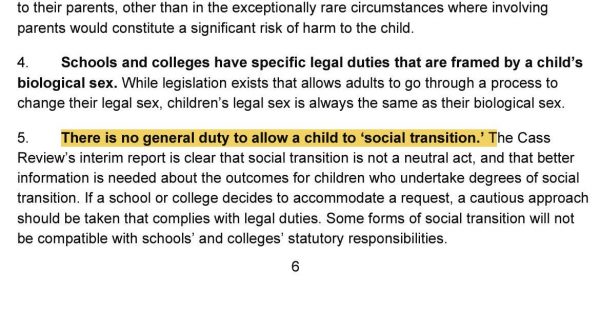
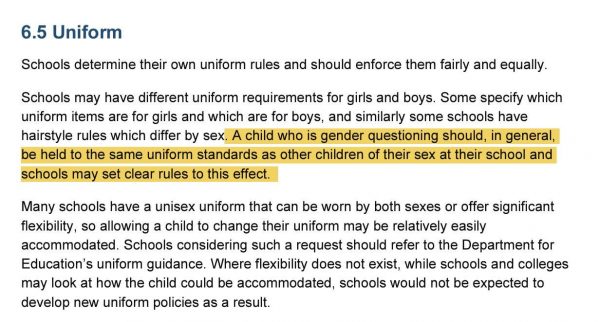
Social transition bans are, of course, seen and being promoted in other countries as well. New Zealand’s “Resist Gender Education” calls for the government to ban all social transition in schools, “even with parental consent.” In a statement to PinkNewsUK, Mermaids, a group that advocates for trans youth, added that the government’s guidance is “out-of-touch” and “absurd”.
“It is difficult to understand how aspects of this draft guidance, including automatically excluding trans pupils from facilities, sport bans or allowing students to be misgendered are compatible with existing equalities law,” the charity said.
“The overwhelming majority of teachers and parents believe trans pupils should be safe at school and will disregard these discriminatory guidelines, which will be non-compulsory.”
NEW ZEALAND
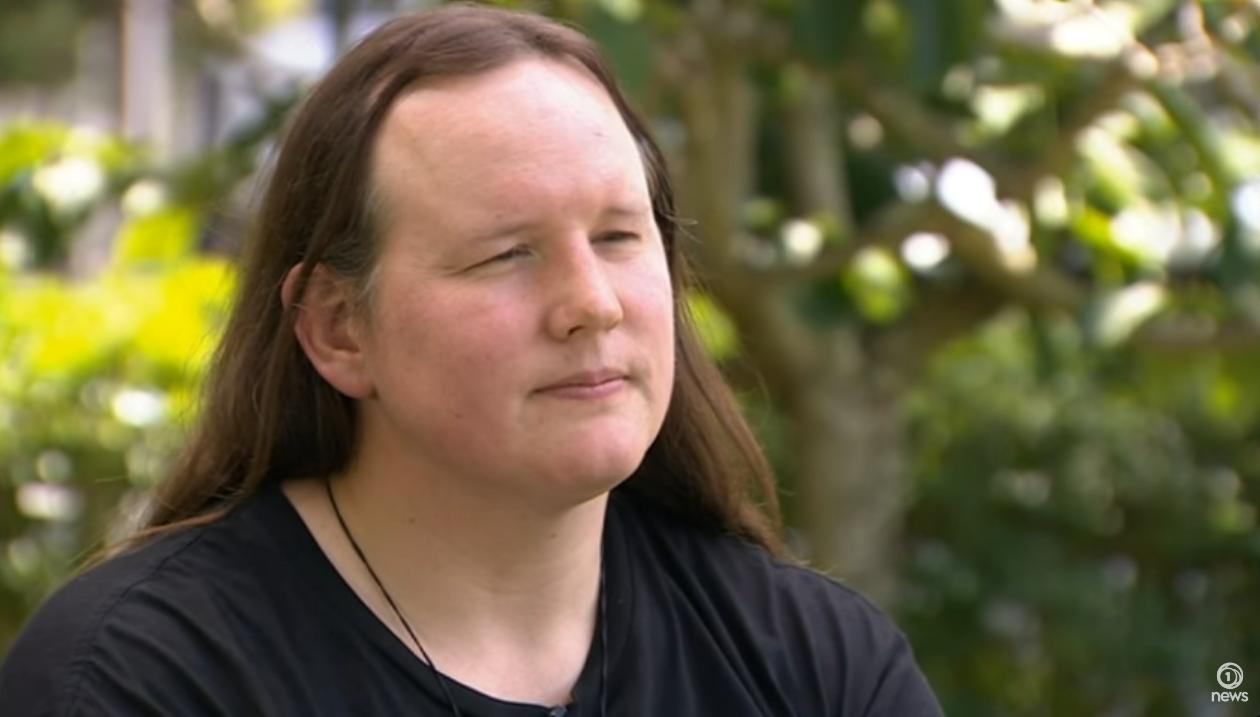
A new government policy will yank millions of dollars of public funding from New Zealand sports organizations as the government of newly elected Prime Minister Christopher Luxon sets out its agenda to “ensure publicly funded sporting bodies support fair competition that is not compromised by rules relating to gender.”
Andy Foster, a spokesperson for the populist and nationalist political New Zealand First party says it is “about fairness and safety in sport for women,” the NZ Herald reported.
Trans athlete and two-time national champion mountain biker Kate Weatherly told the Herald she fears it will lead to athletes being forced into men’s competitions or sidelined completely. Given the minimal number of trans women competing in amateur sports, Weatherly fears it could lead to their exclusion from the grassroots arena, she added.
Sport and Recreation Minister Chris Bishop was uncomfortable discussing the coalition agreement. “New Zealand First are very keen to make sure we have an inclusive environment and atmosphere for everybody — and that rules relating to gender don’t get in the way of that,” Bishop told the Herald.
“It is a tricky one, a thorny issue. There’s strong views on both sides of the debate. I’ll work through that with the relevant sporting bodies. Ultimately it’s got to go over to sporting bodies to make sure that we have fair competition.”
THAILAND
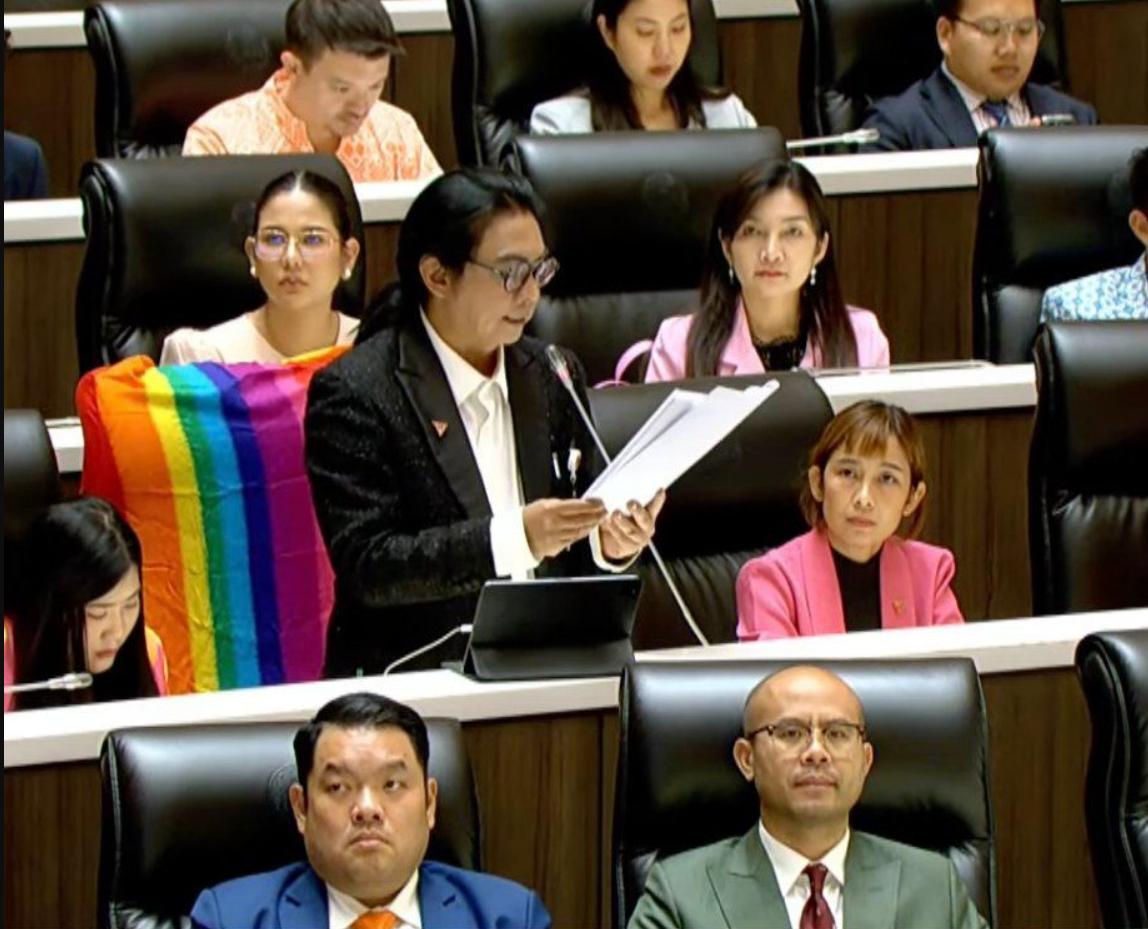
On Dec. 21, the Thai House of Representatives passed four draft bills regarding legalizing same-sex marriages in this Southeast Asia nation which has one of the more open cultures in that part of the world in acceptance of LGBTQ people.
Amnesty International Thailand Researcher Chanatip Tatiyakaroonwong noted in a statement:
“By potentially becoming the third place in Asia to legalize same-sex marriage, Thailand has the opportunity to set a bold example for LGBTI people’s rights in this region. These bills and the debates in Parliament over them represent a moment of hope for LGBTI people’s rights in Asia, even though there is still much to be done for their full protection.
The final version of this draft legislation must not water down calls for the full spectrum of the right to family life, including access to adoption and inheritance for LGBTI couples, as well as the legal recognition of same-sex couples as ‘spouses’ on an equal footing with different-sex couples.
As LGBTI activists have systematically demonstrated, efforts to broaden rights for LGBTI people don’t go nearly far enough to ensure equal rights guaranteed under international law. These bills set Thailand on a new path that could right those wrongs.
If legislation passes on first reading, Thailand’s Parliament should build on the momentum and prioritize the immediate adoption of this law, taking note of the celebratory reaction as a sign that the country is hungry for equality. Lawmakers in Parliament should continue to demonstrate to Thailand’s LGBTI community that they are listening and valuing their voices, wishes and perspectives.
Guaranteeing full marriage equality in law not only sends a message to the rest of the region but to the rest of the world, at a time when countries all over the globe are changing outdated laws and building more inclusive societies.”
Reuters reported that Deputy Prime Minister Somsak Thepsuthin told Parliament, referring to the government’s draft bill.
“In principle, this draft law is for the amendment of some provisions in the civic codes to open the way for lovers, regardless of their gender, to engage and get married. This will provide rights, responsibilities and family status as equal to the marriage between a man and a woman presently in all aspects,” he said.
Somsak said a government survey conducted between Oct. 31-Nov. 14 showed 96.6 percent public support for the draft bill.
Additional reporting from Esquerda News Lisbon, The Standard UK, Greek City Times, The Associated Press, Agence France-Presse, 24.HU News, PinkNewsUK, The BBC, Erin Reed, The New Zealand Herald and Reuters.
United Kingdom
UK Supreme Court rules legal definition of woman limited to ‘biological women’
Advocacy groups say decision is serious setback for transgender rights
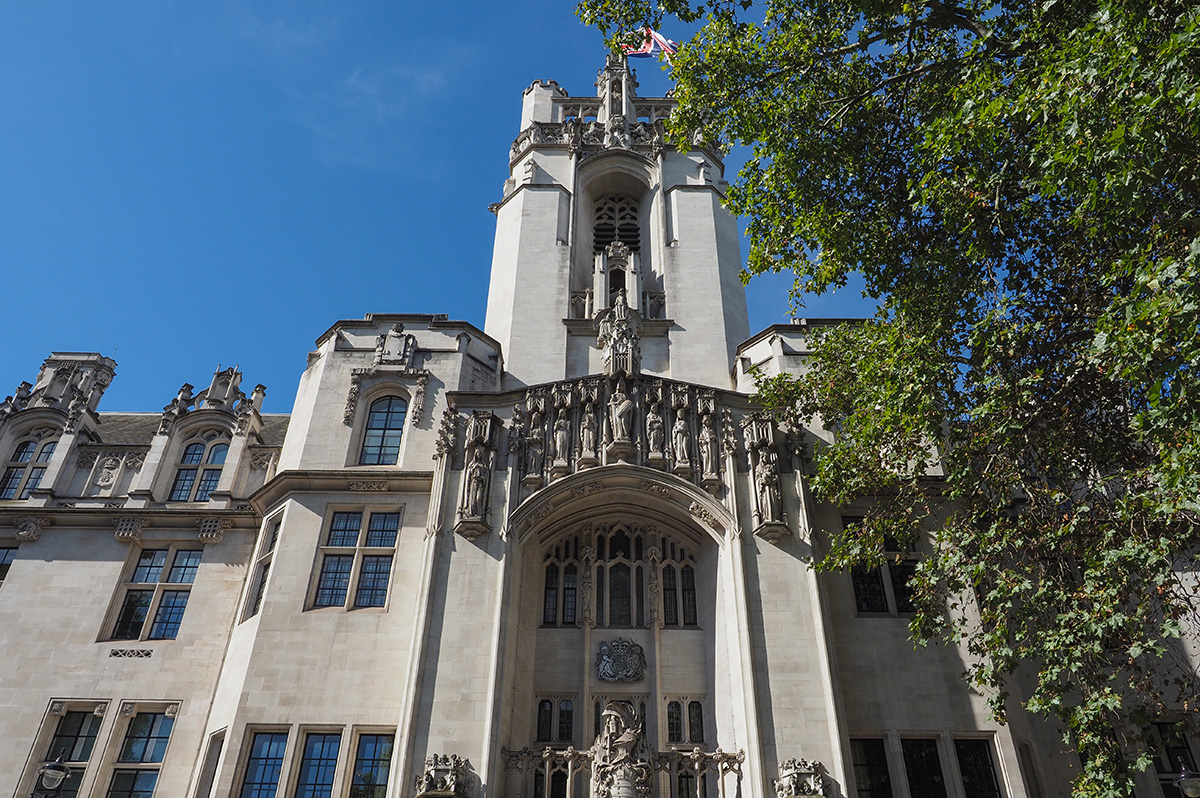
The British Supreme Court on Wednesday ruled the legal definition of a woman is limited to “biological women” and does not include transgender women.
The Equality Act that bans discrimination based on sexual orientation and gender identity took effect in 2010.
Scottish MPs in 2018 passed a bill that sought to increase the number of women on government boards. The Supreme Court ruling notes For Women Scotland — a “feminist voluntary organization which campaigns to strengthen women’s rights and children’s rights in Scotland” — challenged the Scottish government’s decision to include trans women with a Gender Recognition Certificate in its definition of women when it implemented the quota.
Stonewall U.K., a British advocacy group, notes a Gender Recognition Certificate is “a document that allows some trans men and trans women to have the right gender on their birth certificate.”
“We conclude that the guidance issued by the Scottish government is incorrect,” reads the Supreme Court ruling. “A person with a GRC (Gender Recognition Certificate) in the female gender does not come within the definition of ‘woman’ for the purposes of sex discrimination in section 11 of the EA (Equality Act) 2010. That in turn means that the definition of ‘woman’ in section 2 of the 2018 Act, which Scottish ministers accept must bear the same meaning as the term ‘woman’ in section 11 and section 212 of the EA 2010, is limited to biological women and does not include trans women with a GRC.”
The 88-page ruling says trans people “are protected by the indirect discrimination provisions” of the Equality Act, regardless of whether they have a Gender Recognition Certificate.
“Transgender people are also protected from indirect discrimination where they are put at a particular disadvantage which they share with members of their biological sex,” it adds.
Susan Smith, co-founder of For Women Scotland, praised the decision.
“Today the judges have said what we always believed to be the case, that women are protected by their biological sex,” she said, according to the BBC. “Sex is real and women can now feel safe that services and spaces designated for women are for women and we are enormously grateful to the Supreme Court for this ruling.”
Author J.K. Rowling on X said it “took three extraordinary, tenacious Scottish women with an army behind them to get this case heard by the Supreme Court.”
“In winning, they’ve protected the rights of women and girls across the UK,” she added.
It took three extraordinary, tenacious Scottish women with an army behind them to get this case heard by the Supreme Court and, in winning, they’ve protected the rights of women and girls across the UK. @ForWomenScot, I’m so proud to know you 🏴💜🏴💚🏴🤍🏴 https://t.co/JEvcScVVGS
— J.K. Rowling (@jk_rowling) April 16, 2025
Advocacy groups in Scotland and across the U.K. said the ruling is a serious setback for trans rights.
“We are really shocked by today’s Supreme Court decision — which reverses 20 years of understanding on how the law recognizes trans men and women with Gender Recognition Certificates,” said Scottish Trans and the Equality Network in a statement posted to Instagram. “The judgment seems to have totally missed what matters to trans people — that we are able to live our lives, and be recognized, in line with who we truly are.”
Consortium, a network of more than 700 LGBTQ and intersex rights groups from across the U.K., in their own statement said it is “deeply concerned at the widespread, harmful implications of today’s Supreme Court ruling.”
“As LGBT+ organizations across the country, we stand in solidarity with trans, intersex and nonbinary folk as we navigate from here,” said Consortium.
The Supreme Court said its decision can be appealed.
El Salvador
Gay Venezuelan makeup artist remains in El Salvador mega prison
Former police officer said Andry Hernández Romero was gang member because of tattoos

A new investigation points to a discredited, former police officer who played a “key role” in the wrongful deportation of Andry Hernández Romero, a gay asylum seeker and makeup artist who was sent to a maximum security mega prison in El Salvador under Trump’s Alien Enemies Act.
USA Today found in a recent investigation that the former Milwaukee police officer who filed the report about Hernández, citing his tattoos as the reason for the gang affiliation, has a long history of credibility and disciplinary issues in his former police officer position.
The private prison employee who previously worked as a police officer until he was fired for driving into a house while intoxicated — among other alcohol-related incidents — “helped seal the fate” of Hernández.
The investigation by USA Today found that the former police officer accused Hernández of being a part of the Tren de Aragua gang because of his two crown tattoos with the words “mom,” and “dad,” which are now being identified as Venezuelan gang-related symbols.
Since then, his story has made headlines across the nation because Hernández has no criminal record and is legally seeking asylum in the U.S. due to credible threats of violence against him in Venezuela because of LGBTQ persecution.
He was targeted shortly after Trump invoked the Alien Enemies Act of 1798, which is a proclamation for all law enforcement officials to “apprehend, restrain, secure, and remove every Alien Enemy described in section 1 of [the] proclamation.”
Charles Cross, Jr., the former police officer, signed the report which wrongfully identified Hernández as a gang member. Cross was fired in 2012 after many incidents relating to his credibility and how it was affecting the credibility of the department to testify in court.
He had already been under investigation previously for claiming overtime pay that he never earned. In 2007, he had also faced criminal charges for damage to property, according to court records.
In March, the Washington Blade spoke with the Immigrant Defenders Law Center Litigation and Advocacy Director Alvaro M. Huerta regarding the case and stated that “officials with U.S. Immigration and Customs Enforcement and U.S. Customs and Border Protection alleged his organization’s client was a member of Tren de Aragua, a Venezuela-based gang, because of his tattoos and no other information.”
Hernández came to the U.S. last year in search of asylum and now makes up one of 238 Venezuelan immigrants who were deported from the U.S. to El Salvador, Honduras and Venezuela. Many of those being deported are being sent to the Center for Terrorism Confinement, a maximum-security mega prison in El Salvador, which has been accused of human rights violations.
According to the investigation, the Department of Homeland Security “wouldn’t offer further details on the case, or the process in general, but reiterated that the department uses more than just tattoos to determine gang allegiance.”
His story is now being looked at as a cautionary tale of the lack of due process of law the U.S. government is taking, as the Department of Homeland Security and Immigration and Customs Enforcement ramp up deportations across the nation.
Organizations like the Human Rights Campaign are now calling for Secretary of State Marco Rubio and Secretary of Homeland Security Kristi Noem to cease wrongful deportations and return Hernández home. The petition also urges the U.S. government to afford all Americans, forging nationals and asylum seekers residing in the U.S., due process of law as required by the Constitution.
Argentina
Gay, nonbinary parent fights for family in Argentina’s courts
Leonardo Hatanaka alleges they were fired after requesting paternity leave

An unprecedented case could set an important legal precedent for the rights of labor rights for LGBTQ families in Latin America.
Leonardo Hatanaka, a Brazilian pharmaceutical professional, expects an imminent ruling from the Superior Court of Justice in the Autonomous City of Buenos Aires in a case that alleges discriminatory dismissal based on sexual orientation, gender identity, and xenophobia after their son Matteo’s birth in Argentina via “solidarity gestation.” Human rights organizations and international agencies have followed the case closely.
Genzyme de Argentina S.A. and Sanofi in 2023 fired Hatanaka weeks after they notified them of their son’s paternity and requested 180-day parental leave.
“Matteo’s birth was the realization of a dream and the right to form a family with love, dignity and equality, even if that means having to fight every day for our family to be recognized as such,” Hatanaka told the Washington Blade in an exclusive interview.
The National Institute Against Discrimination, Xenophobia and Racism, a government agency known by the acronym INADI that President Javier Milei’s administration has shut down, in November 2023 said Hatanka’s termination was motivated by discrimination based on sexual orientation and gender identity.
(Milei took office in December 2023.)
The General Directorate of Coexistence in Diversity in Buenos Aires’s government in 2024 said institutional xenophobia motivated the firing.
“I am a gay man, foreign, nonbinary, and I had requested to exercise my right to parental leave,” Hatanaka explained. “The company denied access to a basic right to care, which it does provide in other countries, and did not provide any medical coverage for our son, despite his legal registration with both parents’ names.”
Sanofi did not acknowledge responsibility, offer apologies or any kind of reparations, despite the two rulings.
“It was devastating. I was caring for a newborn, at a moment of enormous vulnerability, and the company chose just that moment to abandon us,” said Hatanaka.
The National Labor Court overturned an initial injunction that ordered Hatanaka’s reinstatement. Hatanaka appealed the decision to the Superior Court of Justice in the Autonomous City of Buenos Aires.
“I hope for justice; that the discrimination suffered is recognized, and that this ruling serves as a precedent for all diverse families and LGBTQ+ people who are seeing their rights violated,” said Hatanaka.
The Argentine LGBT Federation, SOS Homophobie in France, and Mothers of Resistance in Brazil are among the organizations that have expressed their support. The latest U.N. report on anti-LGBTQ discrimination also notes the case.
“Companies must go beyond marketing,” Hatanaka emphasized. “Real inclusion requires concrete actions, consistency, and respect for their own policies.”
Hatanaka stressed that “there are instruments such as the UN Guiding Principles on Business and Human Rights. It is time for them to comply with them.” The lawsuit has also become a symbol of the struggle for equality and protection of families with parents who are the same sex.
“I feel I represent many LGBTQ+ families who live in fear of losing everything by exercising their rights,” said Hatanaka. “LGBTQ+ parenting is legitimate, real and deserves protection. No family should be punished for existing.”
-

 District of Columbia2 days ago
District of Columbia2 days agoReenactment of 1965 gay rights protest at White House set for April 17
-

 Hungary2 days ago
Hungary2 days agoHungarian MPs amend constitution to ban public LGBTQ events
-

 Maryland2 days ago
Maryland2 days agoFreeState Justice: Transgender activist ‘hijacked’ Moore’s Transgender Day of Visibility event
-

 Real Estate3 days ago
Real Estate3 days agoNavigating DMV real estate market during political unrest










